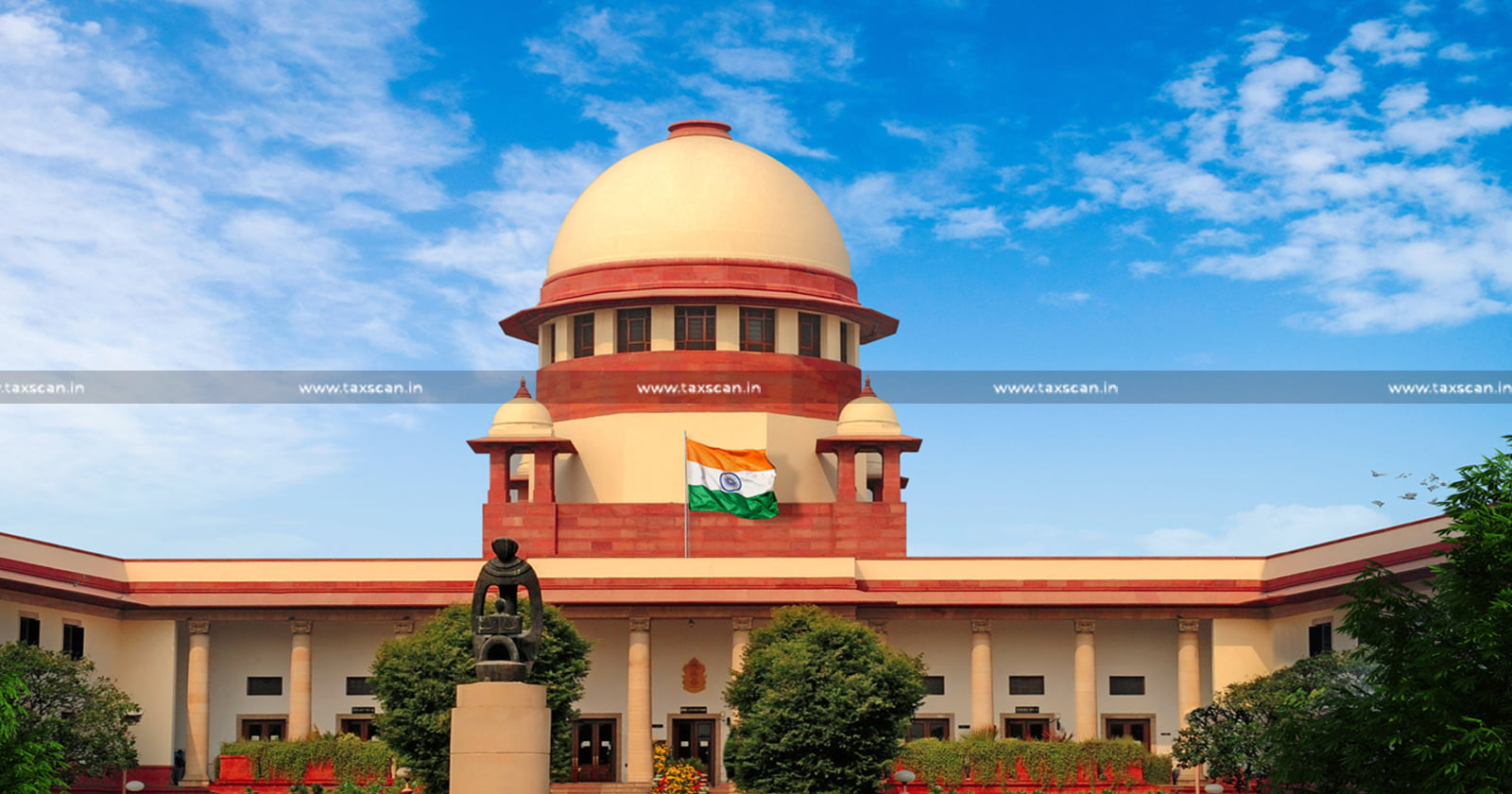Commissioner ( Appeals ) has the power to enhance an Assessment which was Dealt by Assessing Officer: SC rejects review Petition [Read Order]
High Court had held that power under Section 148 of Income Tax Act is an independent power and would not stand excluded on exercise of powers of appellate jurisdiction by the CIT(A) under Section 251 Income Tax Act

Supreme Court – Assessing Officer – assessment – Commissioner Appeals – taxscan
Supreme Court – Assessing Officer – assessment – Commissioner Appeals – taxscan
The Supreme Court dismissed a review petition filed by the assessee challenging the power of Commissioner ( Appeals ) to enhance an assessment which has been dealt by the Assessing Officer. The two judge bench observed that there was no apparent error on the face of the record or any merit in the Review Petition, warranting reconsideration of the impugned order. The bench didn’t find the need to hear arguments on the matter.
Read more: Low Tax Effect As Per CBDT Circular: Supreme Court Dismisses SLP
The assessee, Sunil Jain filed his return of income for the Assessment Year 2017-2018 on 22nd July, 2017 showing a income return of Rs.28,42,430/-. The case of the Petitioner was selected under limited scrutiny ( computer aided scrutiny selection ) byRevenue and accordingly a notice dated 24th September, 2018 was issued under Section 143(2)of Income Tax Act by the Assessing Officer against the Petitioner raising queries regarding cash deposit made by the Petitioner during the demonetisation period.
Read more: Tax effect less than Rupees Ten Lakhs: SC dismisses SLP filed by Income Tax Dept
An assessment order dated 26th December, 2019 was passed by the Assessing Officer under 143(3)of Income Tax Act of the Act for the concerned assessment year 2017-18 at an income of Rs.57,17,430/- making an addition of Rs. 28,75,000/- to the returned income of the Petitioner under Section 69A of the Income Tax Act on the ground that the Petitioner was not able to satisfactorily explain the source of the fund for the cash deposit of Rs.34,54,500/- made by him in his bank account held with the Corporation Bank during the demonetisation period.
Assessee had contended before the High Court that the impugned notice was null and void as it was an encroachment on the exclusive jurisdiction of the Commissioner ( Appeals ), in terms of Section 251 of the Income Tax Act and was therefore liable to be quashed. He stated that the assessment order dated 26th December, 2019 was framed with additions made on the basis of cash deposit in bank accounts and if certain amounts were left to be added then in such a situation after passing of the assessment order, the power to do so lay with the CIT(A) exclusively.
Assessee further contended that the impugned notice had been issued by Revenue without appreciating that the income of Rs.57,17,430/- considered by the Revenue in the show cause notice dated 15th March, 2022 was already under dispute being subject matter of an appeal before the CIT (A) at NFAC. Assessee further argued that the assessment had been reopened on the basis of review and re-appreciation of the same material which were subject to verification in the course of original assessment proceedings under Section 143(3) of Income Tax Act which was not permissible in law. Asseessee also pointed out that transactions of cash deposits were disclosed by the assessee to the authorities in his replies submitted to the assessing officer during the proceedings under scrutiny assessment as well as his income tax returns. Asseessee emphasised that no additions on the basis of the same were made during scrutiny proceedings by the authorities.
Revenue contended that Section 147 of Income Tax Act are distinct and separate from proceedings under Section 263 of Income Tax Act. Merely because proceedings under Section 263 of Income Tax Act are initiated by issuing a notice on that behalf, the Assessing Officer is not debarred from initiating proceedings under Section 147 of Income Tax Act.
The High Court had held that the reassessment notice under Section 148 of Income Tax Act deals with the alleged cash deposit of Rs.12,50,000/- made by the assessee in the Punjab and National Bank and Bank of India. The cash deposit of Rs.12,50,000/- was not adjudicated upon in the proceedings Section 143(3) of Income Tax Act.
The High Court had dismissed the writ petition filed by the Assessee. The High Court had held that just because the Appellate Authority has the power to modify an assessment order with regard to a source of income that has not been considered during assessment proceedings does not mean that the jurisdiction of the authorities under Section 148 of the Income Tax Act is not the same as that being considered under Section 251 of the Income Tax Act. The power under Section 148 of the Income Tax Act is an independent power and would not stand excluded on exercise of powers of appellate jurisdiction by the CIT(A) under Section 251 of the Income Tax Act.
The SC bench comprising B.V.Nagarthana and Ujjal Bhayan rejected the Review petition and upheld the High Court order stating “ we are satisfied that there is no error apparent on the face of the record or any merit in the Review Petition, warranting reconsideration of the order impugned order.“
To Read the full text of the Order CLICK HERE
Support our journalism by subscribing to Taxscan premium. Follow us on Telegram for quick updates


